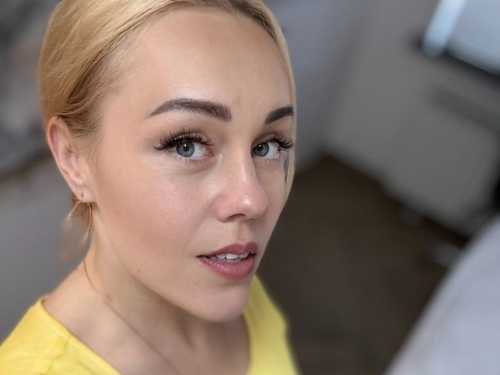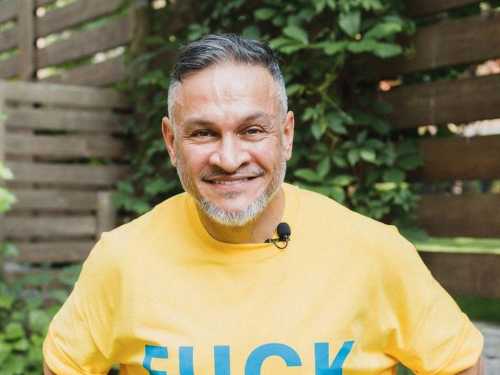
At first, the women were insulted and told that they would bring bad luck to the community. It was at their first tournament out of town that they came up with their name, which is a nod to their rebellion.
Juana Ay Ay, the captain of Las Diablillas softball team, gently cracks an egg against the side of a table and mixes it with greens cooking over an open fire. Chickens cluck in the background. She prepares breakfast for her family each morning, patting tortillas made with corn from nearby fields and warming them on a griddle. Ay Ay was born and raised in Hondzonot, Mexico, a small Indigenous community in the Yucatán Peninsula. “Through our blood runs the blood of the Maya,” she says in “Las Diablillas: The Maya Rebels,” Melissa Fajardo’s documentary about the team.
Until a few years ago, her life was like that of any married woman in her community: long days of housework, child rearing, and sewing. But, “over time, you realize that your role might be bigger,” Ay Ay, who is thirty-eight, says. At that moment, she plucks a red cap emblazoned with “Diablillas” from a post and fastens it under her ponytail. She expertly palms softballs and selects which bats to bring to practice, then yells her goodbyes back into the house.
The New Yorker Documentary
View the latest or submit your own film.

As a girl, Ay Ay loved playing sports at school. But, when she asked her parents’ permission to go out and play after school, they would say no—that only boys could do so. The custom in Hondzonot was that girls would stay busy inside, get married (some as young as twelve or thirteen), and have a family. Ay Ay always thought differently, she told me, but she had no choice but to obey her parents, and later her husband. One day, a mobile health unit came to town, and the doctor taught some local women to play softball with a wooden stick and a tennis ball, as a way to combat the risks of diabetes and hypertension. After the doctor left, the women kept playing, and the health benefits of the sport eased the community stigma. Little by little, Ay Ay asked permission from her husband to go out every day. “I felt it was necessary. I wanted to distract myself,” she told Fajardo, “from the routine at home.”
Fajardo, a native of Tijuana, Mexico, and a video producer at The New Yorker, noted that gender inequality is a constant presence in rural Mexico. “I mean, machismo is a fact of life. You’re born into it,” she said. But she became focussed on women like Ay Ay after reading a memoir by Eufrosina Cruz, the first Indigenous woman to chair the state congress of Oaxaca. The members of Las Diablillas, she said, are women “whose equal rights are violated daily because of the ingrained culture, not necessarily maliciousness.” When they first went out to play, they were insulted and told that they would bring bad luck to the community. It was at their first tournament out of town that they came up with their name, which means “the Little Devils,” a nod to their rebellion.
Las Diablillas practice twice a week and travel around the region to compete in “friendlies” with other women’s teams. (Despite the national women’s team finishing fourth in the world last year, there is no professional women’s softball league in Mexico.) Many husbands and fathers who once criticized them now come out to support the team. “The men are gradually accepting it,” Ay Ay told me. Watching the women is a joy. They run with huge smiles on their faces to catch a ball or tag one another out. They fist-bump skillfully and high-five often, saying “Dale!” and “We won!” But what is most important is that they continue to play, running barefoot, unencumbered in their traditional huipils, a loose-fitting tunic worn by their mothers and grandmothers, and hand-stitched with beautiful, intricate designs of flowers in red and purple and pink and blue. After winning an early game, they were offered uniforms, but they turned them down for the comfort of wearing everyday clothes.
Las Diablillas don’t just play—they let loose, spinning, laughing, dancing, singing, and whistling. “Those are the only three or four hours when we are all there, chirping like birds, saying what we want, things like ‘Catch this!,’ ‘Do this!,’ ‘Do that!,’ and ‘Hit it hard!,’ ” the team’s shortstop, Mirna May Tuyub, told the filmmaker. When a game is over, Ay Ay heads home and returns her red cap to its place. She sets about doing the dishwashing, with her daughter Claudia by her side. Fajardo told me that she was drawn to Las Diablillas because they are changing the mind-set for the next generation. Ay Ay hopes that Claudia will learn by watching her, remarking that “even though you’re a woman, you can evolve and grow.” May Tuyub, speaking with urgency, says, “I want, and I need, for a girl to see a Diablilla and say, ‘If she was able to break a stereotype in a community where there are men who don’t even believe in them . . . what can’t I do next year?’ ”
Sourse: newyorker.com






